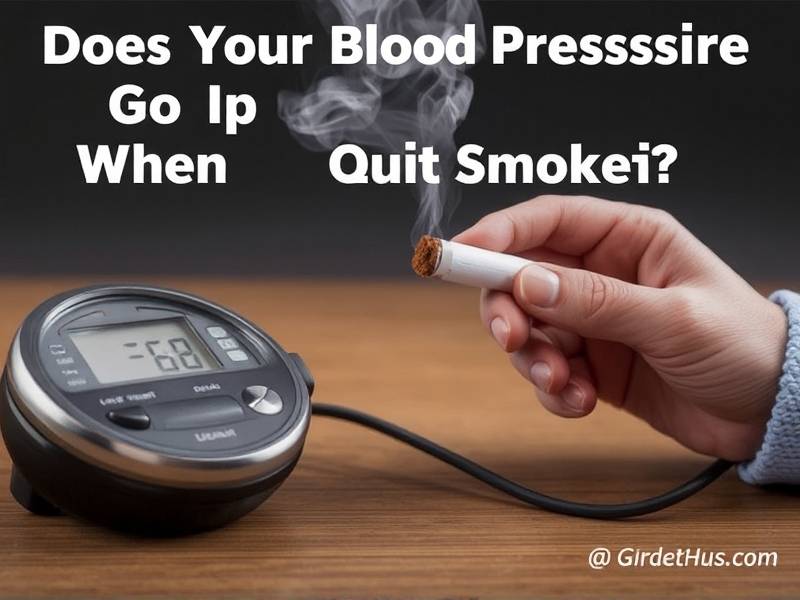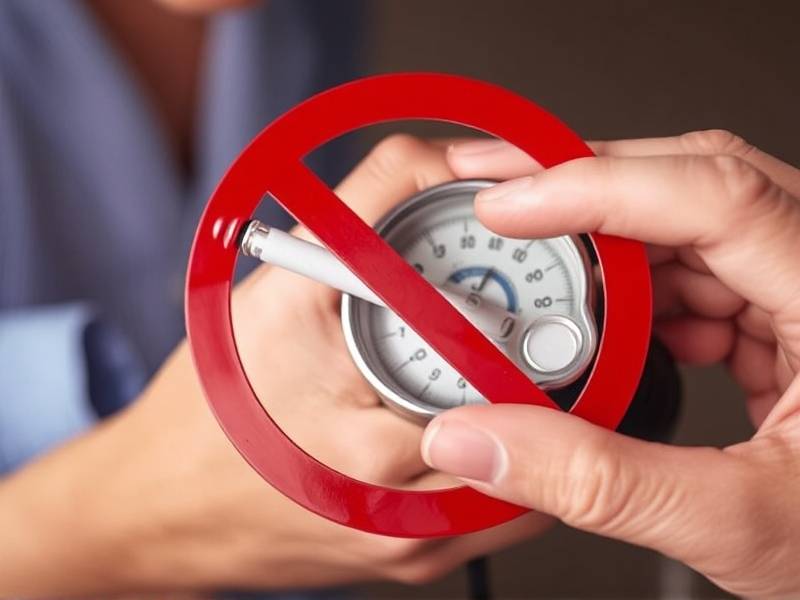Does Your Blood Pressure Go Up When You Quit Smoking?
Navigating the Blood Pressure Shifts After Smoking Cessation
Introduction: The journey to quit smoking is a significant step towards better health, but it's not without its challenges. One common concern among smokers contemplating quitting is how their blood pressure will be affected. This article delves into the relationship between quitting smoking and blood pressure changes, offering insights and scientific perspectives.
Understanding Blood Pressure and Smoking: Blood pressure, measured in millimeters of mercury (mmHg), is a critical indicator of heart health. It represents the force exerted by blood against the walls of your arteries as your heart pumps it around your body. Smoking is a well-known risk factor for high blood pressure, as nicotine can cause constriction of blood vessels and increase heart rate.

The Immediate Impact of Quitting Smoking: When you quit smoking, your body begins to repair itself almost immediately. Within just 24 hours after your last cigarette, your risk of a heart attack starts to decrease, and your blood pressure starts to stabilize. However, the question remains: does blood pressure continue to rise after quitting?
1. Initial Drop: Contrary to what some might think, blood pressure typically does not go up when you quit smoking. In fact, it often starts to drop shortly after quitting due to reduced nicotine levels in the body.
2. Long-Term Benefits: Over time, as your body adjusts to life without nicotine, you can expect long-term benefits for your blood pressure. Studies have shown that within two years of quitting smoking, the risk of heart disease can drop by up to 50%.
3. Managing Blood Pressure Naturally: Quitting smoking is just one part of managing high blood pressure naturally. Incorporating regular physical activity, maintaining a healthy diet low in salt and saturated fats, managing stress levels, and getting enough sleep are also crucial.
4. Monitoring Your Blood Pressure: It's important to monitor your blood pressure regularly after quitting smoking. This helps you track progress and identify any potential issues early on.
5. Professional Advice: If you're concerned about how quitting smoking will affect your blood pressure or if you have existing hypertension concerns, consulting with a healthcare professional is advisable.
Conclusion: Quitting smoking is a positive step towards improved health and lower blood pressure risks. While there may be initial fluctuations in blood pressure as the body adjusts to nicotine withdrawal, long-term benefits are substantial and well-documented. Embrace this change with patience and support from healthcare providers for the best outcomes on your journey towards better cardiovascular health.
By providing clear information and addressing common concerns like whether or not blood pressure increases when you quit smoking, this article aims to empower readers with knowledge that can guide them through their cessation journey effectively and confidently.

